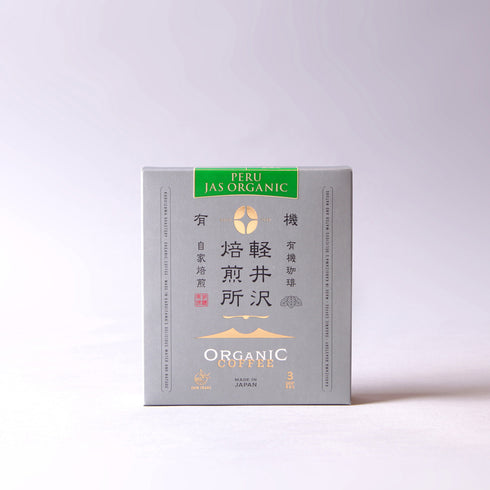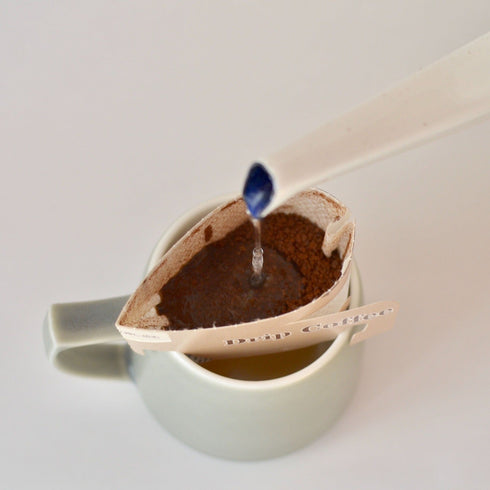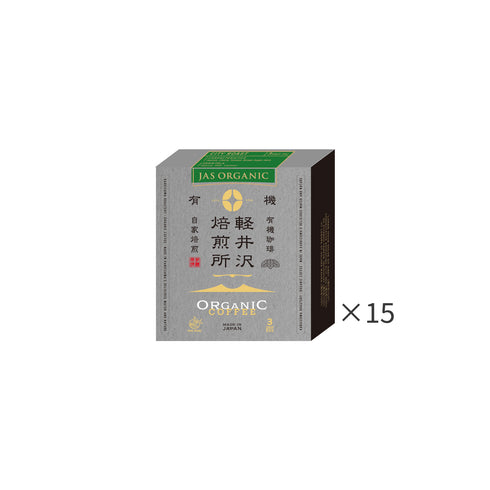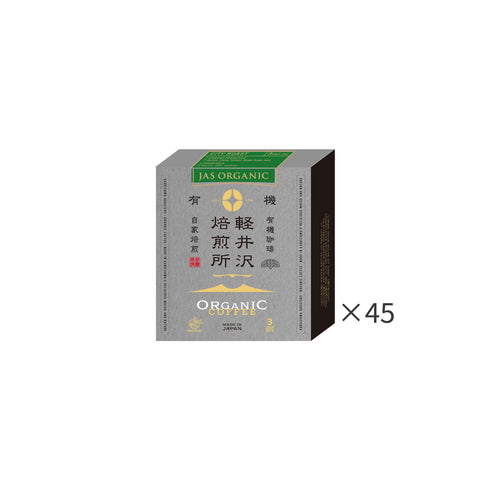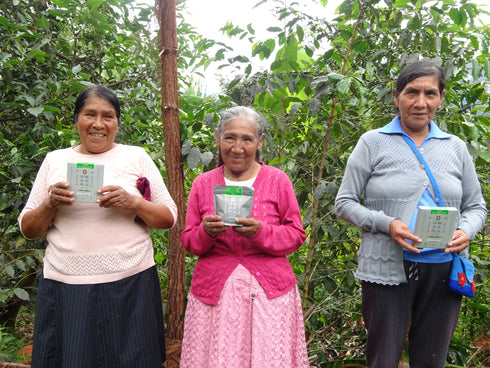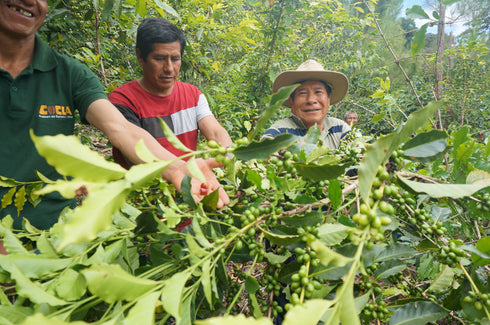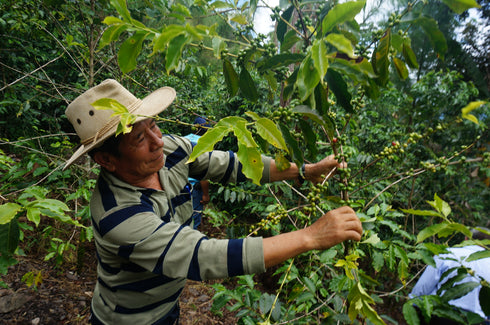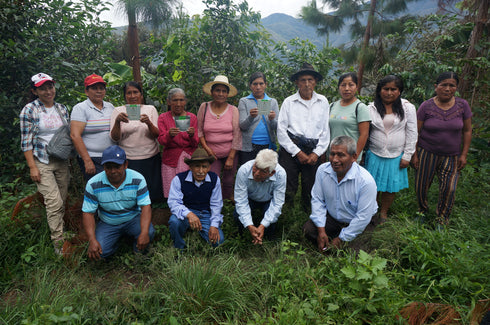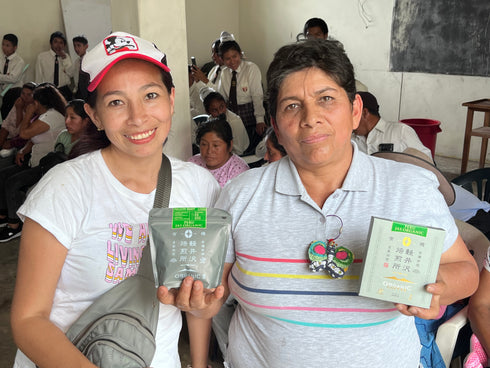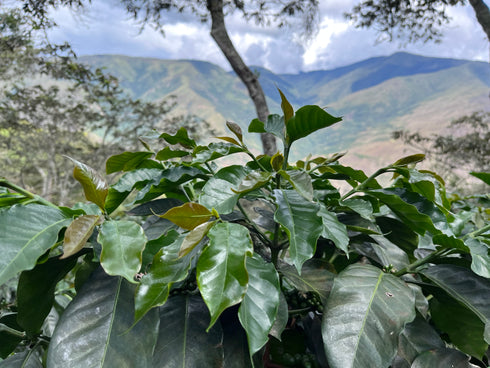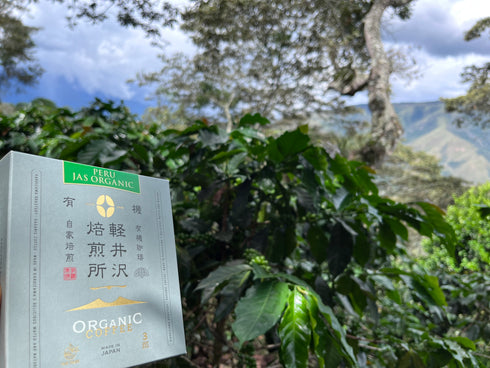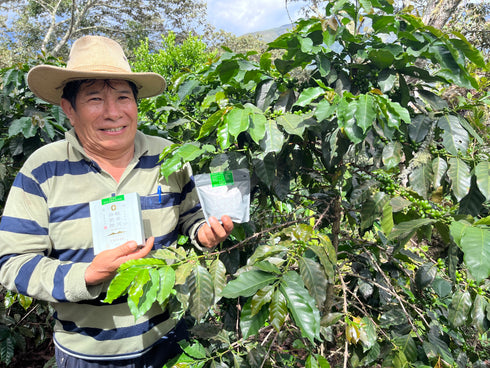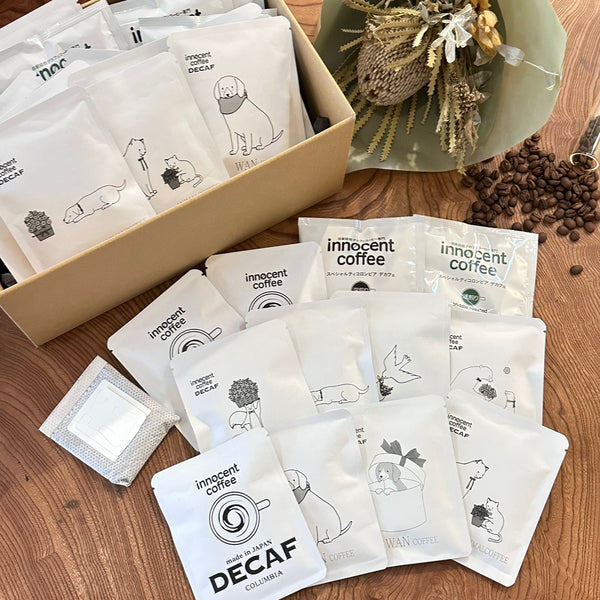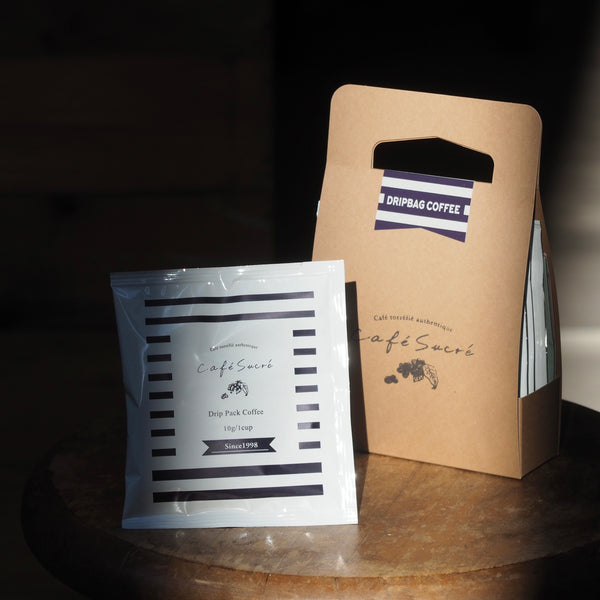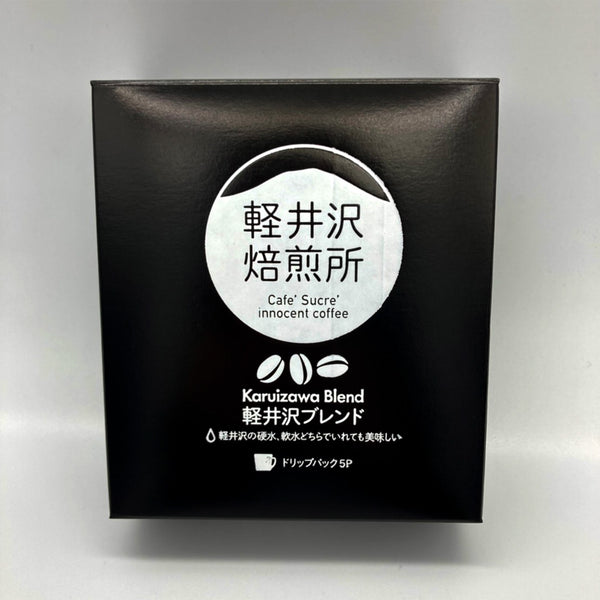JAS Organic Peru Cochapampa Drip Bag
Even when you're busy, you can enjoy delicious, luxurious coffee without spending a lot of time.
[Karuizawa Roastery Organic]
We want to protect the Earth, people, and coffee through organic farming, fair trade, and small things!
Will we be able to drink the delicious coffee we drink every day forever? Organic farming protects the land and people's health, and fair trade and support protects our livelihoods.
Learning about local life and unseen challenges, what each of us can do is very small, but it is important to face them without giving up. Let's think about what we can do now and deliver delicious coffee and smiles to the future.
It contains information about the support provided and voices from the local community. It is a long article, but please take the time to read it.
[About the farm]
This coffee is grown organically at an altitude of 2000m in western Peru, South America, and is characterized by a clean, sweet taste. You can tell it was grown with care. The climate is tropical, and the cold ocean currents make it comfortable all year round. As a land where agriculture can be carried out all year round, it once flourished as the center of the Inca Empire, one of the largest in the world, and people still enjoy its benefits today.
Coffee cultivation and the environment "Cusco" means "navel" in the local Quechua language, and has flourished as a cultural center since it was the capital of the Inca Empire, and is still one of Peru's leading cities today. The Cochapampa region, where the coffee fields are located, is located further inland than the Machu Picchu ruins, in the mountains at an altitude of about 2,000m overlooking the sacred mountain Salkantay, where descendants of the Inca Empire still produce coffee using sustainable, recycling-based organic farming.
【taste】
From the roaster : This coffee is characterized by a slightly sweet and sour taste like orange and a thick texture. It is city roasted to bring out the well-balanced, fragrant aroma.
Flavors and Characteristics : Pink grapefruit, blood orange, cashew nuts
Roast level : City roast





[Quantity capacity]
10g x 3pcs
[About support]
The fields of MICOF, a coffee producers' organization in the Chingwa region of southwestern Rwanda, are located at an altitude of over 1,300m, and their fertile soil and warm climate make them the perfect environment for growing high-quality coffee.
In addition to the volume of production, the quality of coffee is renowned worldwide, and coffee is Rwanda's main export agricultural product, consumed by people all over the world. When we first visited Rwanda with coffee producers in 2010, the country was devastated by ethnic conflict at the time, and construction of a water facility was begun as Rwanda's first fair trade initiative, in order to rebuild the country through coffee.
In 2012, we carried out an expansion and renovation of Gaboza Primary School in the Chingwa district, and in 2016 we built a home economics classroom at the same school to foster skills that will be useful in daily life, with the aim of establishing sewing, nutrition, and cooking education as basic subjects in the primary education curriculum.
[About the importing organization]
Zensho Fair Trade Department here
[Fair trade support]
By purchasing these beans, you are supporting this cause. In recent years, the effects of climate change have led to poor growth and widespread disease in coffee, forcing many producers to replant their coffee trees with unfamiliar varieties. As a result, as part of our fair trade efforts, we support the expansion of production of varieties that producers are passionate about, and use the proceeds to help producers achieve a stable and sustainable lifestyle.
[About Fair Trade]
The dictionary definition of Fair Trade is fair trade.
・A new form of international cooperation that supports the self-reliance and environmental conservation of developing countries by purchasing goods at prices that guarantee fair wages and working conditions to producers in developing countries. (Daijisen)
・A movement to trade traditional handicrafts and agricultural products at fair prices and to support the economic and social independence of people in developing countries who are unfairly exploited by corporations, landlords, etc. (Britannica)
- Initiatives such as Mypedia to continuously import and consume agricultural products and miscellaneous goods from developing countries at fair prices.
* This is not a FLO product. Please feel free to contact us regarding this.
[About JAS Organic]
In 2020, we obtained JAS organic production process manager and organic product packaging company certification. Our organic coffee is certified by JAS organic at every stage of the coffee farming process, and is managed under a consistent system. Not using pesticides is not only safe, but also sustainable for farms and people, and is an important initiative that leads to the SDGs.
[Coffee Crane Project]
This cup of coffee brings a smile to the farm . This organic coffee is not only traded under FairTrade, but it also supports the farms and the people who work there. The delicious coffee we drink every day is made possible by the efforts of the people on the farm. This is an initiative where our smiles bring smiles to the people on the farm.
Let's spread the circle of smiles together.
[Zensho Fair Trade Club in November 2023]
Please also take a look at how Karuizawa Roastery's organic products have returned home to Peru.
[About the climate in Peru]
Producers unanimously agreed that this year was particularly hot, due in part to the El Niño phenomenon.
Even in the town of Quillabamba , near the production area where we were staying last week, temperatures rose to nearly 30 degrees Celsius during the day, making us sweat.
The areas surrounding the production areas usually have a light rainy season from September to December , and a main rainy season from January to March, but when I visited in November last year, there was no rain at all, which affected not only the growth of coffee but also the growth of basic grains such as corn, causing concern for the producers.
Although there has been less rain than usual this year, it is not as bad as last year, and there was a little rain during our stay last week, so we feel a little relieved. The producers are also enthusiastic about next year's harvest.
[About the lives of producers in Cochapampa]
Currently, 72 farming households belong to the association, and each farm manages an average of 2 hectares of coffee farmland.
During the harvest season, they wake up at 3am, go into the mountains and work until around 5pm , harvesting and processing with the cooperation of neighboring farmers. Previously, each farmer de-shelled the cherries, but since last year, in order to standardize the quality, they have been collecting the cherries whole from members and processing them into parchment at the cooperative's shared washing and processing plant (primary processing plant) and the adjacent drying plant.
In addition to coffee, each farmer grows not only cocoa, avocados, mangoes, and other fruits, as well as vegetables and herbs such as tomatoes, celery, and oregano, and livestock such as chickens, ducks, and cuis (guinea pigs for food).They mix coffee cascara, vegetable scraps, livestock manure, and ash from their stoves together to make organic compost which they spread on the fields to recycle, truly living in harmony with the mountains.
[About coffee production costs]
As is happening in Japan and other countries, in Peru and in towns surrounding production areas, prices of fuel, food, and daily necessities are rising sharply, and the cost of living for producers is also rising.
In addition, while the effects of climate change, such as rising temperatures and lack of rain, are already causing coffee to grow poorly and production volumes to decline, changes in the ecosystem accompanying climate change are also increasing the risk of disease, including rust, and insect damage, making coffee cultivation itself more difficult and requiring even more time and effort than before.
Nevertheless, the producers in Cochapampa spare no effort in growing coffee, with the desire to produce and deliver delicious coffee.
"It seems that this is also an issue. We would like companies that sell and handle coffee to be aware of this."One issue that is not unique to Peru is the departure of young coffee producers from the coffee industry, and we also want to make sure that the younger generation can be proud of the job of coffee producer itself.
There are still many challenges ahead, so we hope that those who actually interact with customers will understand the situation in the producing areas before dealing with coffee.



